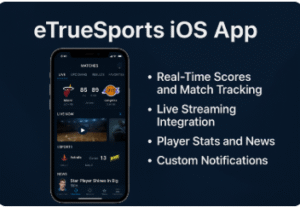
1. Introduction
In today’s hyper-connected digital world, personal identity and public exposure often walk a tightrope. This is especially true for Amanda Labollita, a figure whose name has gained attention through a variety of online spaces—most notably, in connection with the anonymous content-sharing site Anonib and her hometown of Quincy.
This article offers a deep dive into the online journey of Amanda Labollita, the emergence of her association with the term “Amanda Labollita Quincy Anonibs,” and the broader implications it presents on digital privacy, internet ethics, and societal perceptions.
2. Understanding Anonib
Anonib is an imageboard site that thrives on user anonymity. Originally inspired by the infamous 4chan format, Anonib allowed users to create boards based on geographic locations, school names, or shared interests. Content uploaded could range from harmless memes and jokes to deeply personal—and often unauthorized—images or videos.
While anonymity is what makes Anonib popular in niche online communities, it’s also what makes it controversial. The platform has faced repeated criticism due to its history of hosting non-consensual, explicit, or compromising content. Law enforcement and privacy advocates have raised red flags, especially when it involves minors, women, or individuals who never consented to being publicly exposed.
3. Amanda Labollita: A Digital Persona
Amanda Labollita is more than just a trending name; she is a multifaceted individual. Known in some circles for her culinary creativity and in others for her online engagement, Amanda has built a digital presence that resonates with authenticity.
Her involvement in community-based content, local journalism, and social engagement platforms shows her interest in connecting with people meaningfully.
What started as casual social media sharing quickly grew. Amanda gained recognition in Quincy for her participation in local events and sharing snippets of her lifestyle online. However, it wasn’t long before her name started being associated with Anonib—an association that appears to have developed without her consent.
4. The Intersection of Amanda Labollita and Anonib
The phrase “Amanda Labollita Quincy Anonibs” began surfacing in online searches and discussions, hinting at her alleged presence on or connection to the Anonib platform. While Amanda never publicly posted or confirmed any involvement with Anonib, her name appeared in user-generated threads. These threads often included unsolicited images and speculative commentary, which triggered privacy concerns and online debates.
Factors Contributing to the Association:
- User-generated Content: Posts created without Amanda’s knowledge
- Geo-tagging: Boards specific to “Quincy” led to local speculation
- Image Misuse: Photos potentially lifted from her public profiles
This unwanted exposure illustrates a much broader issue about how easily someone’s personal content can be redistributed without consent in anonymous environments.
5. Privacy Concerns and Ethical Implications
What happened to Amanda is a case study in digital ethics and the thin line between public content and personal violation. Platforms like Anonib rely on the idea of anonymity to foster open expression. However, this freedom can easily be abused.
Ethical concerns raised include:
- Consent – Were the photos or content ever meant to be shared?
- Anonymity vs Accountability – Who is responsible when there’s no identity attached?
- Reputational Damage – How does one undo digital defamation?
The Amanda Labollita Quincy Anonibs situation brings these dilemmas to the surface. It shows how anonymity can lead to violations of privacy that are hard to trace back and even harder to reverse.
6. Legal Perspectives
Legally, situations like Amanda’s often fall into a gray area, especially if the content doesn’t meet the threshold for explicit criminal violations. In the U.S., certain laws protect individuals against the unauthorized sharing of intimate content (commonly referred to as “revenge porn”), but enforcement can be tricky.
| Legal Area | Status |
|---|---|
| Non-consensual Content Laws | Vary by state; often hard to enforce |
| Defamation and Libel | Require proof of falsehood and damages |
| Platform Accountability | Often limited due to Section 230 in the US |
In Amanda’s case, the fact that the content appeared on a board without her consent makes it a potential candidate for legal recourse. However, the anonymous nature of Anonib creates significant obstacles in identifying the original poster.
7. Societal Impact and Public Discourse
The case has sparked meaningful conversations, especially within Quincy and online spaces, about how we treat individuals in the digital era. Public opinion remains divided—some people defend anonymous speech as a form of digital freedom, while others advocate for stricter regulations.
The Amanda Labollita Quincy Anonibs story serves as a rallying point for those who believe:
- Online platforms need stricter content moderation
- Real-world consequences should follow digital harassment
- We need better education on digital rights and responsibilities
8. Amanda Labollita’s Response and Advocacy
While Amanda has kept a relatively low public profile regarding the Anonib allegations, sources close to her and social media activity suggest she has taken a stand on digital safety and privacy. She’s voiced support for campaigns that advocate for:
- Internet safety education
- Consent awareness in digital sharing
- Laws that protect individuals from anonymous abuse
In doing so, Amanda has transformed her unfortunate association with Quincy Anonibs into a push for change.
9. Broader Implications for Online Communities
Amanda’s experience sheds light on the future of anonymous content sharing. The digital community must ask whether platforms like Anonib serve any social good or if they do more harm than help.
Key Takeaways:
- Stronger Policies: Platforms must enforce strict rules on non-consensual content
- Education: Users, especially youth, need to understand digital boundaries
- Support Systems: Victims need legal, emotional, and community support
10. Conclusion
The Amanda Labollita Quincy Anonibs case isn’t just about one person. It symbolizes the struggles many face when their identities are misused online. Whether intentionally or inadvertently, being exposed on anonymous platforms can have real-world effects that linger.
As society continues to grapple with privacy, anonymity, and free speech, Amanda’s story serves as a warning, a lesson, and a catalyst for reform in how we navigate the digital realm.
Related Articles
Unpacking the AmandaLabollita Labooty Leak Archive: Digital Privacy, Ethics & Implications
Who Is Calling from 18018605348? A Complete Guide to Reverse Lookup, Call Safety
Discover Bongo Stays DAAEK5025BTO9ZF San Antonio TX US – A Complete Guide to Comfort & Convenience
Complete Guide to CE16600H01 Rev No 1.3: Specifications, Features, Applications






